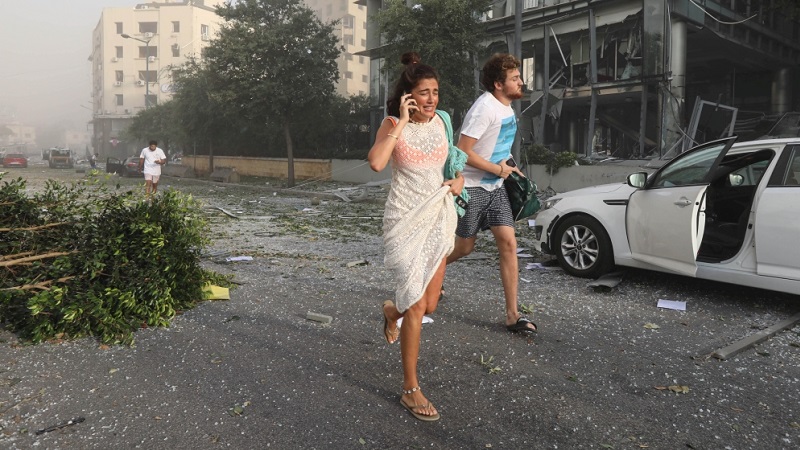“Hospitals are full as they are specialised for coronavirus cases so they cannot assist with injuries. Many people are still under the destroyed buildings and some are in the sea. What’s happening now is a disaster. We don’t know how to respond because the need is so huge.”
These are the harrowing words of Jihan Kaisi, a humanitarian worker with Africa Muslim Agency (AMA) on the ground in Lebanon, witnessing the devastation unfolding following Tuesday’s massive explosion in Beirut. The country is reeling after what is being considered the worst explosion in the Middle East country in decades, set against the backdrop of the country’s current social, economic and health crisis.
Lebanese President Michel Aoun called for an emergency cabinet meeting on Wednesday and requested a two-week state of emergency should be declared following the death of 100 people and the injuries of 4,000 others.
Kaisi says the country is facing a “humanitarian crisis” and the death toll is expected to rise as the search for more bodies continues.
“The explosion took lives, crumbled buildings and shattered windows and we still don’t definitively how it happened. We were alerted by the sound of explosions even surrounding countries heard the sounds,” Kaisi told VOC on Wednesday morning.
Kaisi said initially locals thought what they heard were the rattles of an earthquake.
“Primarily we didn’t know where the sound came from until we switched on the television and saw reports of the explosion emanating from the port,” stated Kaisi.
However, there are no confirmed reports of how the explosion happened. Local officials linked the blast to some 2,750 tonnes of confiscated ammonium nitrate that were being stored in a warehouse at the port for six years.
Beirut’s city governor Marwan Abboud said 300,000 people had lost their homes and authorities are working on providing them with food, water and shelter. The damages range from $3-5billion and extends to over half of the city.
“Last night we were distributing food and drinking water to the International Federation of Red Cross and civil defence teams, displaced families,” said Kaisi.
Kaisi explained how grim the situation on the ground is.
“I can’t put into words what we have seen, there are bodies that are being uncovered as we speak, there are crying babies and wailing mothers. It is very difficult, and it is very harsh to witness these things firsthand,” said Kaisi.
Furthermore, Kaisi added one of the biggest medicine warehouses have been destroyed in the blast causing further agony.
LISTEN:
Regional manager for AMA, Hussain Choonara said it is a sad day for humanity.
“We do extensive work in Lebanon with the Syrian and Palestinian refugees, so when the news broke it made sense to immediately spring into action and assist,” explained Choonara.
Choonara added that a campaign has been launched to aid the people of Lebanon after the catastrophic blast.
“The campaign titled ‘Heal Lebanon’ has been launched to provide food and emergency aid,” stated Choonara.
With the blast happening with the backdrop of the COVID-19 pandemic, Choonara explained he is grateful to have teams on the ground that are world-renowned.
“We would be there if we could but obviously we have full trust in our operations happening in Lebanon. They are excellent at what they do and at serving humanity,” concluded Choonara.
VOC






 WhatsApp us
WhatsApp us 

